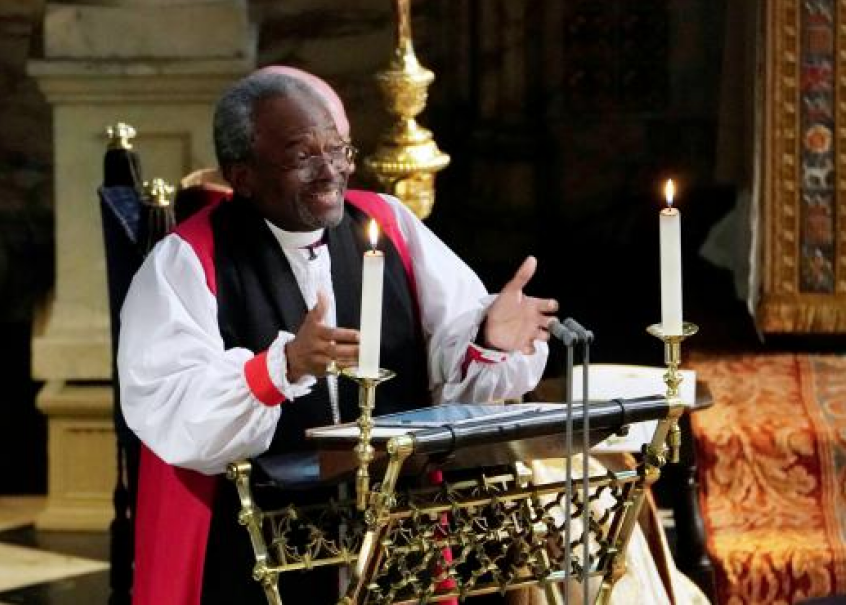Anglican congregations will be allowed to share services and preachers with black-majority churches under a major overhaul of Church of England law to be debated next month.
The move is likely to be dubbed as 'the Michael Curry effect' after the African-American bishop's barnstorming sermon at the Royal wedding last month. The change will relax rules that govern what links parishes can make with other churches.

The injection of preachers from black-majority congregations, which are growing rapidly across the UK, into the CofE comes after Curry's sermon was the most tweeted about moment of last month's wedding between Prince Harry and Meghan Markle.
'A lot of the life of Christianity in England is in Pentecostal churches, black-led, black majority churches,' said William Nye, general secretary to the CofE's ruling general synod.
'This is a framework to make it easier for parishes to work with what is the fastest growing expression of Christianity in England; to welcome them, celebrate them, work in partnership with them and learn from them.'
Historic church law previously meant that only ministers from a set list of national churches can lead prayers, preach or perform marriages in Church of England buildings. But the change will mean bishops can approve ministers from other churches, including newer independent evangelical, Pentecostal and charismatic groups, to lead services.
Rev Dr Joe Aldred, a Pentecostal representative on the CofE's synod and a bishop in the Church of God of Prophecy, said: 'This is a great moment for relations between the Church of England and Pentecostal and charismatic denominations and congregations, including many black-led churches, as we share the task of building the Kingdom of God in this country.
'In working together and worshipping together our churches have the potential to transform their neighbourhoods.
'The shape and style of the Church in England has changed considerably over the years and this legislation reflects the new reality on the ground.'













